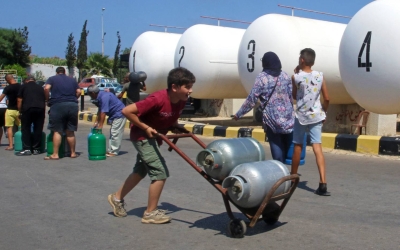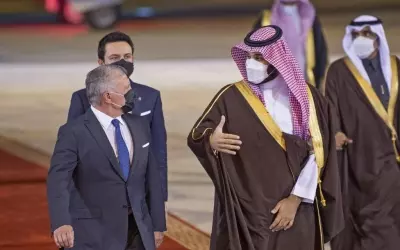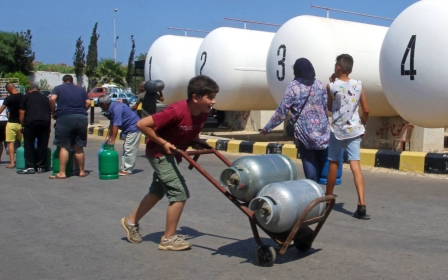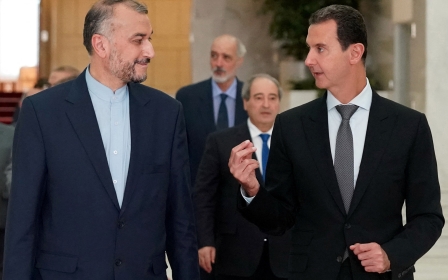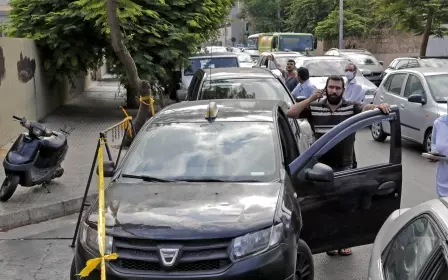Will Lebanon's gas deal with Egypt bring Syria in from the cold?
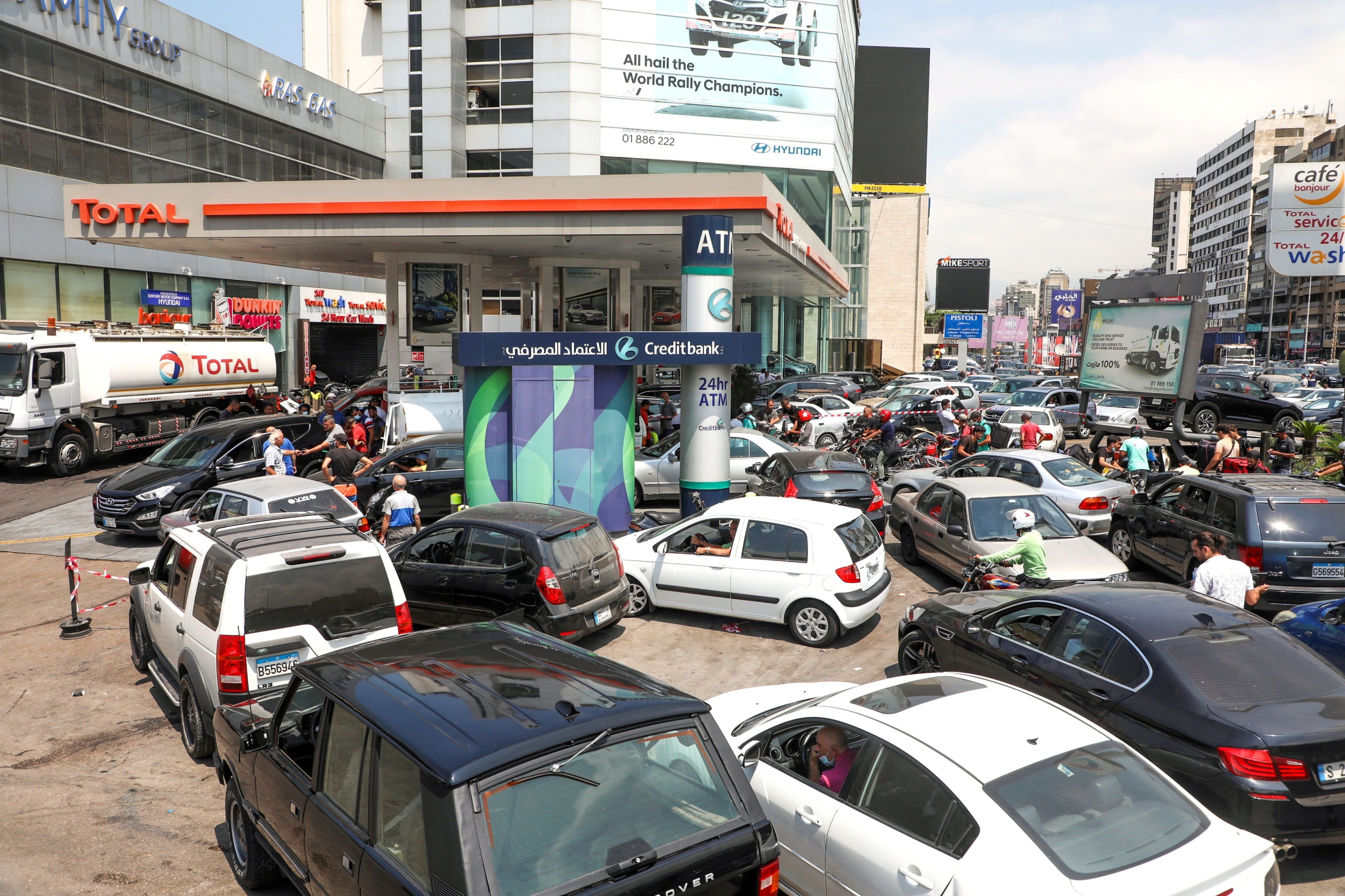
Energy ministers from Egypt, Syria, and Lebanon are set to convene in Jordan on Wednesday to discuss the transportation of Egyptian gas to Lebanon for electricity generation, according to Jordanian state-owned broadcaster Mamlaka.
The countries are part of a US plan to deal with Lebanon's fuel crisis that envisions Egyptian natural gas being transported to Lebanon via the Arab Gas Pipeline, which crosses through both Jordan and Syria.
Under the US project, Jordan, which generates a surplus of electricity, would also be allowed to sell its excess production to Lebanon by transporting power through Syria via the Arab interconnection grid.
Previous US governments, both Republican and Democrat, generally sought to isolate the Syrian government and imposed a devastating sanctions campaign on Damascus.
While the Biden administration has largely stuck to that agenda, it has more recently struggled with a response to Hezbollah's plan to ship sanctioned Iranian fuel to Lebanon.
Washington now finds itself in the awkward position of green lighting greater cooperation between its regional allies and the regime of Bashar al-Assad in Damascus.
What might be uncomfortable for the US has proven a boon for the government of President Bashar al-Assad.
Natasha Hall, a senior fellow with the Center for Strategic and International Studies, told Middle East Eye that the deal "represents a golden opportunity for Damascus to become part of the fold again".
Will Washington issue a sanctions waiver?
Last week Lebanon sent its first official diplomatic delegation to the war-torn country since the beginning of its devastating 10-year conflict.
At the meeting, a Syrian official said Damascus was "ready to help" Lebanon overcome its energy crisis.
Mohanad Hage Ali, a fellow at the Malcolm H. Kerr Carnegie Middle East Center in Beirut said the US was likely to try and limit its engagement with the Syrian government.
"They basically will issue a sanctions waiver like they have with some Iranian fuel shipments in the past. I don't think they will work directly with Damascus," he told MEE.
Many of Washington's Middle Eastern allies are likely to be eager to take the chance to bring the Assad government back into the regional fold.
Last month, MEE reported that Jordan was seeking to deepen its economic cooperation with Damascus and was fully reopening a key border crossing.
On his last trip to Washington last month, King Abdullah of Jordan - a staunch US and Western ally - said the Syrian government was "there to stay", and emphasised the need for dialogue with Damascus.
Earlier this year, UAE Foreign Minister Sheikh Abdullah bin Zayed lashed out against US sanctions imposed on Syria, saying they were making it more difficult to normalise relations with Damascus and negotiate a return to the Arab League.
The US Caesar Act, which took effect in June of last year, seeks to hold Assad accountable for atrocities committed during the ten-year war and prevent government reconstruction efforts as well as the normalisation of trade.
Caesar Act sanctions have also garnered heavy criticism from aid groups who have complained that the measures have put a burden on ordinary citizens and impeded humanitarian efforts, as banks are hesitant to do business in the war-torn country, despite aid waivers.
Mixed blessings for Hezbollah
Washington is negotiating with the World Bank to finance the cost of Egyptian gas and there are a myriad of logistical challenges, according to the Reuters news agency.
The pipeline and electric grid will require rehabilitation after years of neglect and the Assad government is expected to ask for an increase in its wheeling fees, the cost paid to transmit the power.
Concerns have been voiced about Damascus serving as a key transit point for Lebanon's energy shipments and having the ability to cut off its gas and electricity at will.
Syria occupied Lebanon from 1976 until 2005 and - before the country's Arab Spring uprising - sought to wield influence over its small neighbour.
The Syrian government is also allied with the Lebanese military and Hezbollah, which has its own plan to bring sanctioned Iranian fuel to the impoverished country.
The first fuel shipment from Iran is expected to arrive in the Syrian port of Baniyas later this week and analysts say it will then be transported by truck into Lebanon.
Hezbollah leader, Hassan Nasrallah, has challenged the US to prevent the Iranian fuel shipment and blamed Washington's sanctions policies for Lebanon's economic woes.
"Go ahead and give Lebanon an exemption for Iranian gasoline and diesel… go ahead and give Lebanon an exemption from Caesar," Nasrallah said in a speech last month.
The issue of supplying the Lebanese people with gasoline has become part of what Hall labeled "the newest episode in a saga of one-upmanship," between Iran-backed Hezbollah and Washington.
Hage Ali said Hezbollah may be aiming to provoke the US over its fuel shipment. "They really want the US to take steps to block the gasoline," he said. "It's a trap."
For Iran and its proxy, the US plan offers an opportunity and a challenge. After a decade of isolation, their ally in Damascus is finally being brought back into the regional fold and will gain a precious new source of revenue.
However, it will be taking part in a US-sponsored plan, and if successful America’s allies will likely have greater leverage over Lebanon's energy needs.
"Hezbollah likes the fact this is going through Syria, but this could be a big PR win for the US if they can provide electricity," Hage Ali said. "For Hezbollah, this mixes things up."
Middle East Eye delivers independent and unrivalled coverage and analysis of the Middle East, North Africa and beyond. To learn more about republishing this content and the associated fees, please fill out this form. More about MEE can be found here.


